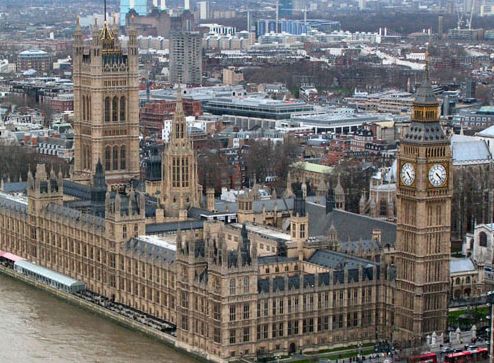

The extradition of a British student accused of copyright infringement in the US has been approved by the Home Secretary.
Theresa Mays says that Richard O’Dwyer can be extradited to the US after she “carefully considered all relative matters” despite the TV Shack creator claiming that he has done nothing illegal under British law.
It says that TVShack hosted links to pirated films and television programmes and claims that O’Dwyer earned more than $230,000 (£147,000) in advertising revenue. Westminster Magistrates Court ruled in January that he could be extradited to the US, where he could face up to five years in prison.
O’Dwyer says that he has done nothing wrong as he did not host any content and only provided links to other sites in a similar manner to Google. He said that he was “surprised” when UK and US police officers seized computer equipment from his home in November 2010 and he was arrested in May 2011.
“I’ve done nothing wrong under UK law, and, it’s pretty ridiculous isn’t it?” he told the BBC. “A 65-year-old man was extradited a few weeks ago [alleged arms dealer Chris Tappin], so if they can extradite someone that old they can extradite anyone really, couldn’t they?”
“Copyright laws differ between countries and that’s yet to be fought, that argument,” he added.
O’Dwyer’s legal team contends that the trial should be held in the UK, where he was based at all times rather than the US, where copyright law is harsher and where he would be cut off from legal funding.
However the US Immigration and Customs Enforcement Agency says that website owners who operate using .com or .net addresses could face extradition, even if the activity was legal in the UK. Its basis for prosecution is that these addresses are routed through the American Internet infrastructure owner Verisign, which is based in Virginia.
The Home Secretary’s ruling does not mean that O’Dwyer will be extradited immediately as there will be a full hearing under the 2003 Extradition Act. The Home Office says that he has 14 days from the time of notification, in this case Monday, to appeal the ruling.
O’Dwyer’s mother has strongly criticised the extradition treaty, saying that it is heavily weighted in favour of the US. She drew comparisons of her sons case with that of Gary McKinnon, who faces trial in the US on charges of hacking into 97 military and NASA systems to find out information about UFOs and aliens despite the fact that he suffers from asperger’s syndrome and fears that he would not receive a fair trial.
How well do you know Internet security? Try our quiz and find out!
All Cybertrucks manufactured between November 2023 and February 2025 recalled over trim that can fall…
As Musk guts US federal agencies, SEC issues summons over Elon's failure to disclose ownership…
Moonshot project Taara spun out of Google, uses lasers and not satellites to provide internet…
Pebble creator launches two new PebbleOS-based smartwatches with 30-day battery life, e-ink screens after OS…
Amazon loses appeal in Luxembourg's administrative court over 746m euro GDPR fine related to use…
Nvidia, xAI to participate in project backed by BlackRock, Microsoft to invest $100bn in AI…
View Comments
So now you can be extradited for a crime that is not even a crime in this country, and where the person has not even been in the foreign country - something morally wrong here!
If the US felt he was breaking UK copyright law then action should have been taken here - although it would be a civil action.
It is amazing that the US Immigration and Customs Enforcement Agency cam waste money on things like this when they let so much illegal drug trade through into their own country. The Home Office might decline to waste their time too, since so much illegal drug traffic to the UK comes through the US and the failure of the same body to stop it.